

Tao Te Ching
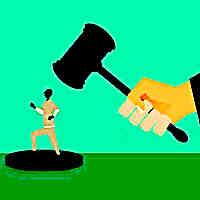
ACLU
Punishment
Punishment can represent a useful educational method but more often devolves into a powerful tool of repression. Attempts to define a justifiable purpose of punishment have created some of history’s most controversial and dubious debates. Running through the themes of justice, law, politics, and education; the ability to punish is perhaps the most easily corrupted powers humans and society receive. Too easily subject to conceptual bias, political conflict of interest, and religious dogmatism; punishments too-often fall off into fits of revenge, repression, and manipulation.
Lucretius describes how civilization evolved codes of punishment because we became “sick of the life of brute force.” While Kant and Hegel thought that all punishments are only based on retribution and revenge, Plato, Hobbes, Rousseau, and Dostoevsky stressed the validity of punishments only when based on the reformation and deterrence of criminals. Montesquieu emphasizes the utility of punishments in terms of their ability to prevent crime and points out the discrepancy between what may best help reform and more severe punishments more effective as deterrents. Socrates submitted to an unjust application of a law because he believed in law itself while Gandhi and Thoreau thought unjust laws should not be obeyed. Wang Zhen highlighted the importance of intention and stressed being lenient with unintentional crimes, severe with intentional ones.
Philosophers like Lao Tzu, Diogenes, Mencius, Dostoevsky, Rousseau, Nietzsche, Jeremy Bentham and many others emphasized most punishments as a way of protecting strong, rich, and powerful elites from the rebellions of poor, weak, and oppressed majorities. As Mencius wrote, “hypocritical, greedy, and criminal leaders create the causes of crime and then punish the people for it.”
While punishment as revenge most often only creates more crime, more rebellion and lawlessness; viewing criminals as mental or social health victims opens the doors of rehabilitation. Instead of prisons mainly becoming universities for teaching people how to be more ferocious and successful criminals, they could foster more healthy environments and teach useful skills that could help create productive and meaningful careers.
Quotes (78)
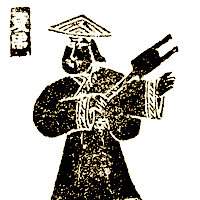
“All you teeming multitudes, listen to my words! It is not that I, the little child, would dare to act in a disorderly way. But this ruler of the Miao, with his unyielding ways, deserves Heaven's punishment.”

“You will not be punished for your anger; you will be punished by your anger.”
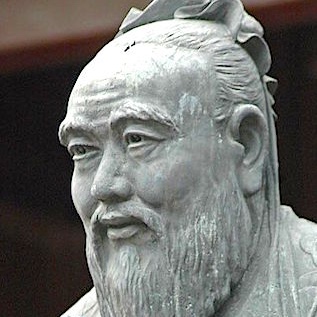
“Good government is that which resorts least to laws and punishments.”

“Generals who advance with no thought of fame, who retreat with no fear of punishment, who think only of protecting their country and helping their king are the treasures of the realm.”

“When he saw temple officials arresting someone who had stolen a bowl from them, Diogenes said, "The great thieves are leading away the little thief."”

“When some one reminded him that the people of Sinope had sentenced him to exile, he said, 'And I sentenced them to stay at home.'”

“'Politicians and generals who always want to extend their territories and fill their treasuries are called, 'Robbers of the People and should suffer the highest punishments.”

“When you see the jailer you abjectly touch the ground with your forehead. At the mere sight of his underlings you are seized with terror... Such ignominy can never be wiped away.”

“Mankind, tired out with a life of brute force, lay exhausted from its feuds; and therefore the more readily submitted its own free will to laws and stringent codes.”

“if you hold anything against anyone, forgive them, so that your Father in heaven may forgive you your sins.”

“Avenge not yourselves, for it is written, 'Vengence is mine, I will repay,' saith the Lord.”
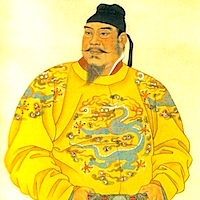
“If I decrease expenses and lower taxes, permit only honest officials, the people will have enough food and clothing. This will do more to abolish robbery than the most severe punishments.”
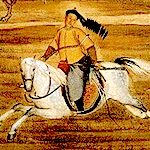
“When ordinary officials and the common people have no fear, punishment occurs. When ministers and high officials have no fear, banishment occurs. When princes and kings have no fear, warfare occurs.”

“No unintentional transgression is too great for his leniency… No intentional crime is too small for his punishment.”

“Your Majesty relies too heavily on punishments. It would be appropriate to employ scholars.”

“How shall one take vengeance on an enemy? By increasing one's good qualities.”
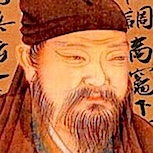
“There is nothing that is not the Tao. When good people seek it, they are able to find it. When bad people seek it, they are able to avoid punishment.”

“Like a man struck by a stone he throws in the air, the leader who lacks a gentle mind will be punished by karma as he punishes others.”
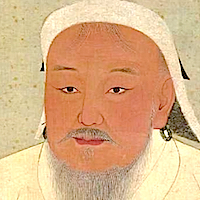
“It is necessary to accept hard and inconvenient advice, to punish bad people with merciless law, to protect the numerous subjects with kindness, to strive after a good name that is honored everywhere.”

“punishments cannot be relied upon for governing… the more people we kill, the more people break the law. Thus, punishment is not the answer.”

“So long as people, being ill-governed, suffer from hunger, criminals will never disappear. It is extremely unkind to punish those who, being sufferers from hunger, are compelled to violate laws.”

“Making the people afraid to transgress by intimidating them with capital punishment is a superficial policy.”

“When I first ascended the throne, the people were unruly and officials corrupt. If ten people were executed in the morning, a hundred were breaking the same law by evening… I turned to the Taoteching… decided to do away with capital punishment and put criminals to work instead. In the year since then, the burdens of my heart have been lightened. Truly, this book is the greatest teacher of kings.”

“Instead of inflicting these horrible punishments, it would be far more to the point to provide everyone with some means of livelihood, so that nobody's under the frightful necessity of becoming first a thief and then a corpse.”
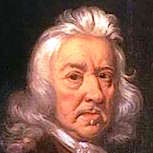
“Intemperance is naturally punished with disease, injustice with the violence of enemies, cowardice with oppression”

“In a natural state, there is nothing which can be called just or unjust, only in a civil state”

“You believe I have offended heaven, and must suffer eternal fire: Will not that be sufficient?... If mine is a religious offense, leave it to religious punishments.”

“I never doubted… that all crime will be punished, and virtue rewarded, either here or hereafter. These I esteem’d the essentials of every religion.”

“frequent punishments are a sign of weakness or slackness in the government. There is no man so bad that he cannot be made good for something.”
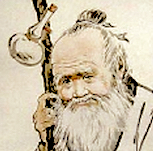
“When feeling returns to essence, punishment turns into merit. Reverting to the original, going back to the fundamental, there is a return to correctness.”
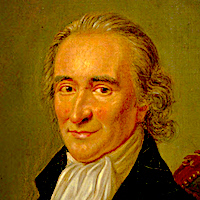
“Persecution is not an original feature in any religion; but is always the strongly marked feature of all religions established by law.”
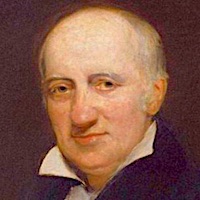
“If he who employs coercion against me could mold me to his purposes by argument, no doubt he would. He pretends to punish me because his argument is strong; but he really punishes me because his argument is weak.”

“God will take care of the poor trampled slave, but where will the slaveholder be when eternity begins?”
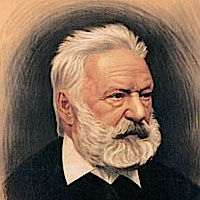
“You insist on the example [of the death penalty]. Why? For what it teaches. What do you want to teach with your example? That thou shalt not kill. And how do you teach thou shalt not kill? By killing.”
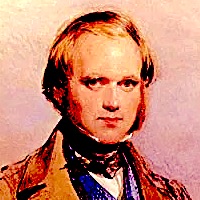
“I hardly see how anyone ought to wish Christianity to be true; for if so, the plain language of the text seems to show that the men who do not believe, and this would include my Father, Brother and almost all my best friends, will be everlastingly punished. And this is a damnable doctrine.”

“Every human action is determined by hereditary constitution, [the environment], the example and the teaching of others… This view should teach one profound humility—one deserves no credit for anything. Nor should one blame others… It’s right to punish criminals but solely to deter others.”
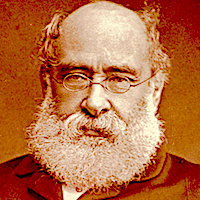
“Then in this country a man is to be punished or not, according to his ability to fee a lawyer!”
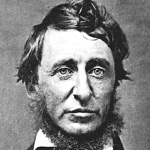
“Under a government which imprisons any unjustly, the true place for a just man is also a prison.”

“all these punishments reform no one, and what's more, deter hardly a single criminal, and the number of crimes does not diminish but is continually on the increase.”

“Without hypocrisy, lying, punishments, prisons, fortresses and murders, no new power can arise and no existing one hold its own... thus efforts to get it are not likely to be coupled with goodness, but with the opposite qualities of pride, craft and cruelty.”

“there is no unfairness in punishing people for their misfortunes or rewarding them for their sheer good luck; it is the normal condition of human life that this should be done, and no right-minded person will complain of being subjected to the common treatment.”
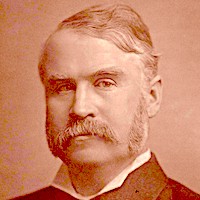
“My object all sublime I shall achieve in time— To let the punishment fit the crime.”
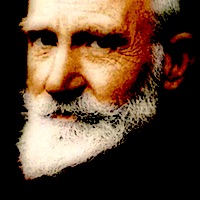
“Crime is only the retail department of what in wholesale, we call penal law.”
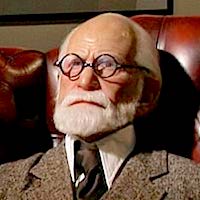
“[Dostoevsky’s wife] had noticed that the one thing which offered any real hope of salvation—his literary production—never went better than when they had lost everything.... When his sense of guilt was satisfied by the punishments he had inflicted on himself, the inhibition on his work became less severe.”

“The reformative effect of punishment is a belief that dies hard, chiefly I think, because it is so satisfying to our sadistic impulses.”

“Fate had punished her enough! It seemed to me more meaningful that she should return to life in order to atone in life for her crime... She had to bear this burden.”

“How shall you punish those whose remorse is already grater than their misdeeds?”

“Prisons should be replaced by well-enclosed state farms, each designed for a separate grade of offender, and all designed for an orderly and open-air life to teach useful occupations and to restore the inmate to the behavior of a responsible citizen.”

“The punishment always does more harm than the crime and the people can be trusted to behave decently if you will only let them alone.”

“No punishment has ever possessed enough power of deterrence to prevent the commission of crimes. On the contrary, whatever the punishment, once a specific crime has appeared for the first time, its reappearance is more likely than its initial emergence could ever have been.”
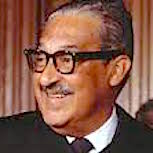
“The death penalty is no more effective a deterrent than life imprisonment… It is also evident that the burden of capital punishment falls upon the poor, the ignorant and the – underprivileged members of society.”

“The gods had condemned Sisyphus to ceaselessly rolling a rock to the top of a mountain, whence the stone would fall back of its own weight. They had thought with some reason that there is no more dreadful punishment than futile and hopeless labor.”

“The death penalty can be tolerated only by extreme statist reactionaries who demand a state that is so powerful that it has the right to kill.”

“If it's punishment, it's something outside. Someone is doing it to us. But if we think of it in terms of suffering, then it's with us and with others. That's a very different way of looking at it, being punished or just suffering.”

“As long as you have capital punishment there is no guarantee that innocent people won't be put to death.”

“blame and punishment are as practically necessary as they are intellectually vacuous”

“I believe [...] that while all human life is sacred there’s nothing wrong with the death penalty if you can trust the legal system implicitly, and that no one but a moron would ever trust the legal system.”
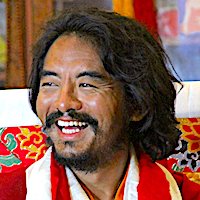
“the self-imposed punishment that anger inflicts — When we act out of anger, we punish others and ourselves. Our equanimity evaporates. Our hearts shut down. The capacity to give and receive love freezes on the spot.”

“Half the world regulates sex work by criminalizing everyone involved. But if you’re forced to choose between obeying the law and feeding yourself or your family, you’re going to do the work anyway, and take the risk... The law forces you to keep selling sex, which is the exact opposite of its intended effect... prohibiting the sex industry actually exacerbates every harm that sex workers are vulnerable to.”


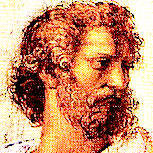





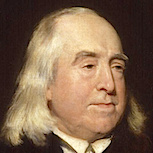

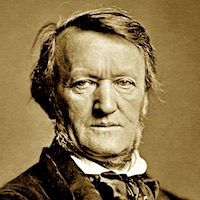
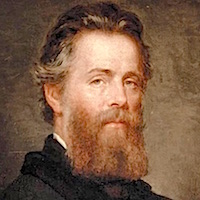
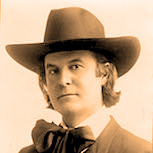


Comments (0)